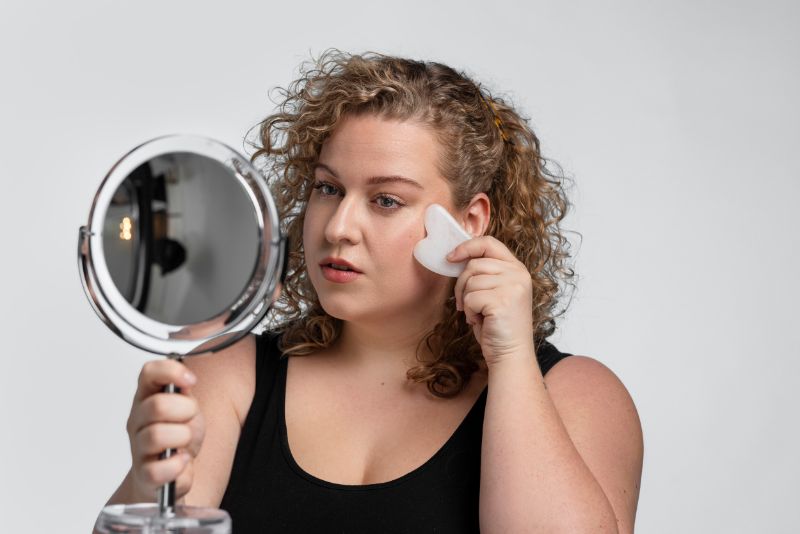Do you have excessive hair growth on your face or body? You are not alone. Millions of women worldwide suffer from hirsutism, a condition characterized by excessive hair growth in areas of the body where men typically grow hair. While this condition can be embarrassing and frustrating, treatments available can help you regain control over your appearance. In this blog post, we will take a comprehensive look at hirsutism, including its symptoms, causes, and treatment options.
Hirsutism: What is it, and whom does it affect?
Hirsutism is a medical condition that refers to the excessive growth of hair on the body. It can affect both men and women but is more common in women. A variety of factors, including hormonal imbalances, certain medications, and underlying conditions, can cause the condition. Hirsutism can often be a source of distress for those affected by it. There are several treatments available that can help to reduce the amount of hair growth, including topical creams and medications.
The causes of hirsutism
The causes of hirsutism can vary from person to person. In some cases, it may be due to an underlying condition, such as PCOS (polycystic ovary syndrome) or adrenal gland disorders. In other cases, it may be due to medications, natural hormone changes, and genetics.
PCOS is a disorder that affects the ovaries and is one of the most common causes of hirsutism. It is a hormonal disorder that can cause enlarged ovaries and cysts on the ovaries. PCOS occurs when the ovaries produce too many androgens. This can lead to irregular periods, fertility problems, and insulin resistance.
Adrenal gland disorders can also cause hirsutism. These disorders can cause the body to produce too much of the hormone testosterone. Testosterone is responsible for the growth of facial and body hair in both men and women.
Certain medications can also cause hirsutism as a side effect. These include birth control pills, steroids, and testosterone replacement therapy.
Natural hormone changes can also trigger hirsutism. Hormonal imbalances are the most common cause of hirsutism. Androgens are male hormones that are present in both men and women. However, women with hirsutism often have higher levels of androgens than women without the condition.
Genetics may also play a role in hirsutism as it can run in families.
The symptoms of hirsutism
Hirsutism is a condition that results in excessive hair growth. The hair is usually dark and coarse and can grow on the face, chest, back, and thighs. Hirsutism can be a cosmetic concern, but it can also cause psychological distress.
Hirsutism can be a frustrating condition to deal with, but there are treatments available that can help lessen its effects.
Treatment options for hirsutism
There are various treatments for hirsutism depending on the underlying cause. If the cause is hormonal, treatment may involve birth control pills or other hormone therapies. If the cause is PCOS, treatment may involve medication to lower androgen levels or insulin sensitizers to help with insulin resistance. Laser hair removal can also be used to remove unwanted hair.
Medications that may be used to treat hirsutism include birth control pills, anti-androgens, and glucocorticoids, which can be taken orally or applied topically. Another option is laser hair removal, which uses lasers to target and destroy hair follicles. This method is often more effective than medications but is also more expensive and time-consuming. Finally, electrolysis is a treatment that uses electrical currents to destroy hair follicles. This method is very effective but can be painful and may require multiple sessions.
Living with hirsutism
Living with hirsutism can be a difficult and frustrating experience for many women as it can cause feelings of embarrassment and low self-esteem. In addition, the constant need to shave or wax can be time-consuming and expensive.
Finding the right treatment can be challenging, as each person’s response to treatment varies. Some people may also find that their hirsutism returns after stopping treatment. Despite the challenges, there are ways to manage hirsutism and live a happy and healthy life. Here are some tips:
- Talk to your doctor about your options. There is no one-size-fits-all solution for hirsutism, so it’s important to work with your doctor to find the best treatment.
- Be patient. It can take time to see results from hirsutism treatments. Don’t give up if you don’t see results immediately.
- Take care of your skin. Be sure to moisturize your skin after shaving or waxing to prevent irritation.
- Find a support system. Talking to friends or family members who understand what you’re going through can be helpful. There are also online forums where you can connect with others with hirsutism.
If you are worried about excessive body or facial hair, you can talk to one of Cura4U online doctors and discuss your options. The doctor will be able to assess your individual case and recommend the best course of action for you. There are various options available for treating excess hair, so you don't have to feel stuck with the problem. With the help of a Cura4U doctor, you can get on the road to feeling better about your appearance.











